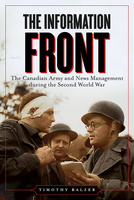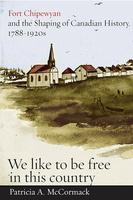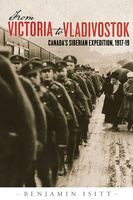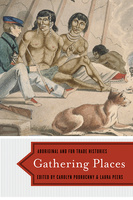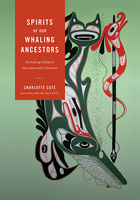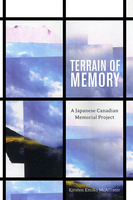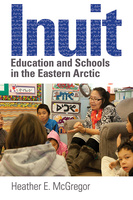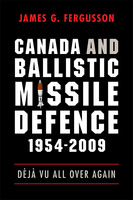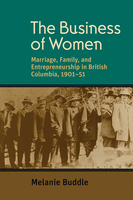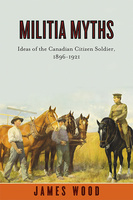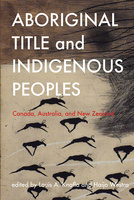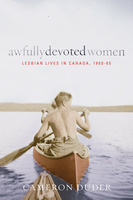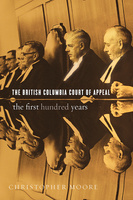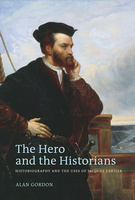The Information Front
The Canadian Army and News Management during the Second World War
The first book on the public relations efforts of the Canadian Army during the Second World War.
Fort Chipewyan and the Shaping of Canadian History, 1788-1920s
"We like to be free in this country"
This meticulously researched study of the most famous of the Treaty No. 8 communities offers a unique perspective on nation building that challenges the nature of history writing in Canada itself.
Placing Memory and Remembering Place in Canada
A fascinating book that situates local places and local expressions of public memory such as statues, photographs, and oral stories at the centre of identity formation in twentieth-century Canada and beyond.
From Victoria to Vladivostok
Canada’s Siberian Expedition, 1917-19
Uncovers the forgotten story of the Canadian Siberian Expeditionary Force – sent to Russia in 1918 as part of an Allied intervention to defeat Bolshevism – despite the objections of many Canadians who were sympathetic to the goals of the Russian Revolution.
In Defence of Principles
NGOs and Human Rights in Canada
This exploration of the activities of four Canadian NGOs in advancing and defending human rights principles sheds new light on the fragility and resilience of human rights norms in liberal democracies.
Gathering Places
Aboriginal and Fur Trade Histories
Scholars from multiple disciplines draw on unique and innovative sources – archaeological and material evidence, personal experience and oral history – to recover Aboriginal and cross-cultural histories and explore new approaches to the past.
Spirits of Our Whaling Ancestors
Revitalizing Makah and Nuu-chah-nulth Traditions
Following the revival of the gray whale hunt by the Makah and Nuu-chah-nulth tribes in the Pacific Northwest, this books looks at the significance of whaling to these societies, exploring environmentalism, animal rights, and what it means to be “Indian.”
Terrain of Memory
A Japanese Canadian Memorial Project
This book explores how Japanese Canadians living in an isolated mountainous valley in the province of British Columbia worked together to transform the village where they lived for over fifty years from a site of political violence into a space for remembrance.
Inuit Education and Schools in the Eastern Arctic
The first history of educational policy, practice, and decision making in the Eastern Arctic, now Nunavut.
No need of a chief for this band
The Maritime Mi'kmaq and Federal Electoral Legislation, 1899-1951
A nuanced account of Ottawa’s failed attempt to replace Mi’kmaw political culture with Euro-Canadian political values and structures.
The Practice of Execution in Canada
The first comprehensive examination of execution as a social institution in Canada.
Canada and Ballistic Missile Defence, 1954-2009
Déjà Vu All Over Again
This insightful book offers an explanation for Canada’s uncertain response to US ballistic missile defence initiatives from the 1950s to the present.
The Business of Women
Marriage, Family, and Entrepreneurship in British Columbia, 1901-51
A groundbreaking study of women entrepreneurs in early twentieth-century British Columbia.
Militia Myths
Ideas of the Canadian Citizen Soldier, 1896-1921
Militia Myths traces the cultural history of the citizen soldier from 1896 to 1921, an ideal that lay at the foundation of how Canadians experienced and remember the First World War.
Aboriginal Title and Indigenous Peoples
Canada, Australia, and New Zealand
Offers a perspective on Aboriginal title and land rights that extends beyond national borders and the contemporary context to consider historical developments in common law countries.
Awfully Devoted Women
Lesbian Lives in Canada, 1900-65
This intimate study of the lives of middle-class lesbians who came of age before the gay rights movement unveils a previously unknown world of private relationships, discreet social networks, and love.
Veterans with a Vision
Canada’s War Blinded in Peace and War
Illuminates the challenges faced by Canada’s war-blinded veterans and outlines the history of the Sir Arthur Pearson Association of War Blinded, an advocacy group for all Canadian veterans and blind citizens.
The British Columbia Court of Appeal
The First Hundred Years
An authoritative history of British Columbia’s highest court.
One of the Family
Metis Culture in Nineteenth-Century Northwestern Saskatchewan
Employs a sophisticated theoretical framework and diverse sources to trace the birth and growth of a Metis community in northern Saskatchewan.
The Hero and the Historians
Historiography and the Uses of Jacques Cartier
This unique exploration of commemoration and memory traces Jacque Cartier’s evolving image over five centuries to show how changing notions of the past have shaped identity formation and nationalism in English- and French-speaking Canada.

